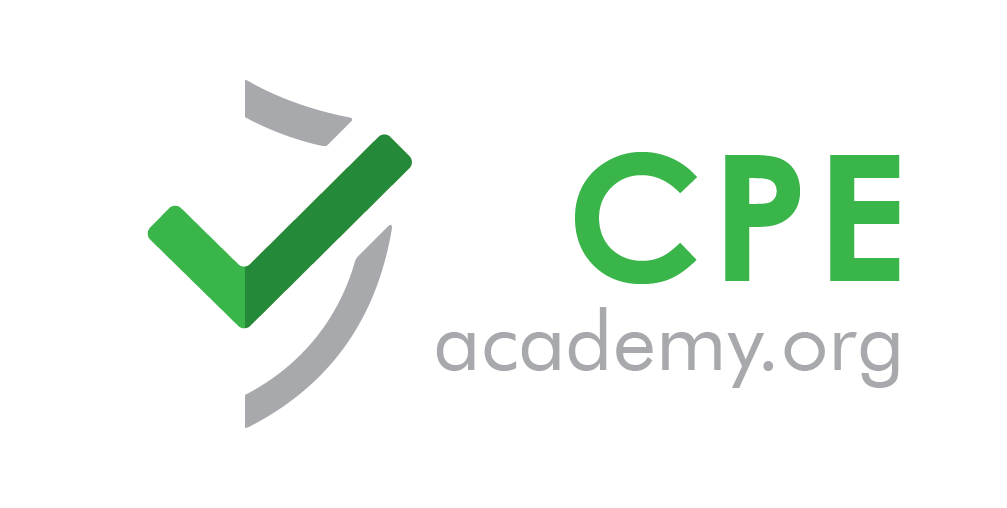
In an era where technology permeates every aspect of our lives, cybersecurity has become a critical concern for businesses of all sizes. Small businesses, in particular, are increasingly becoming targets for cyberattacks due to their often limited resources and vulnerabilities. To safeguard their digital assets, it's essential for small businesses to stay updated on the latest cybersecurity trends and threats. In this article, we will explore some emerging cybersecurity trends that small businesses should be aware of, based on the latest research in the field.
Ransomware Attacks on the Rise
Ransomware attacks continue to afflict organizations worldwide, with small businesses being no exception. Recent studies, such as the Verizon Data Breach Investigations Report, have corroborated this alarming trend by highlighting the escalating frequency and sophistication of ransomware attacks. As noted by the report, "Ransomware is the most common type of malware, found in 39% of malware-related data breaches." The financial implications of such attacks are dire, with cybercriminals often demanding substantial ransoms to decrypt compromised data. In response, it is imperative that small businesses prioritize comprehensive data backup strategies, robust employee training programs, and the adoption of sophisticated security solutions to mitigate the risks associated with ransomware, as emphasized by cybersecurity experts.
Zero Trust Architecture
Zero Trust Architecture (ZTA) is gaining prominence within the cybersecurity landscape, with extensive research backing its efficacy. Based on the concept that trust should not be assumed for any entity, whether internal or external, ZTA promotes continuous verification of user identities and device integrity while strictly limiting access privileges to the minimum necessary for each individual or system. In the words of Dr. Chase Cunningham, Chief Strategy Officer at Ericom Software, "Zero Trust has gone from a buzzword to a critical cybersecurity strategy." Small businesses would be prudent to explore the implementation of ZTA to fortify their defenses against unauthorized access and data breaches.
Multi-Factor Authentication (MFA)
Recent studies have underscored the increasing importance of Multi-Factor Authentication (MFA) as a foundational cybersecurity measure in today's ever-evolving threat landscape. Research by the National Institute of Standards and Technology (NIST) reveals that MFA significantly reduces the likelihood of unauthorized access, even if login credentials are compromised. NIST recommends MFA as a crucial security control, stating, "MFA is highly effective in mitigating credential theft, brute force, and phishing attacks." Small businesses should heed this advice and consider the widespread implementation of MFA across their digital platforms and services to augment security.
Artificial Intelligence (AI) and Machine Learning (ML) in Cybersecurity
Cybersecurity researchers are increasingly harnessing the power of AI and ML to elevate threat detection and response capabilities. According to a report by Capgemini, "84% of organizations have seen improvements in threat detection and response due to AI/ML." These technologies possess the ability to analyze vast datasets in real-time, identifying patterns indicative of cyberattacks. Small businesses would be wise to explore AI-driven cybersecurity solutions, as supported by current research, to bolster their defenses and enhance threat detection capabilities.
Remote Work Security
The COVID-19 pandemic has expedited the adoption of remote work, necessitating a focus on remote work security. Recent studies, such as the "State of Remote Work" report by Buffer, emphasize the imperative for small businesses to secure remote connections, enforce robust endpoint security measures, and provide comprehensive employee training on remote work best practices to forestall breaches originating from home networks.Cloud SecurityCloud computing has become integral to small business operations, but it brings forth distinctive security challenges. Research from Gartner stresses the significance of configuring cloud services correctly, managing access controls, and conducting regular monitoring of cloud environments for anomalies. Failing to adhere to these measures can expose sensitive data to cyber threats.
IoT (Internet of Things) Vulnerabilities
As small businesses increasingly adopt IoT devices for operational enhancement, researchers are sounding alarms about the escalating security risks associated with these interconnected gadgets. Research by Forescout Technologies highlights that "75% of IoT devices exhibit vulnerabilities." Small businesses must actively assess the security of their IoT devices, ensuring regular updates and patches are applied
In conclusion, small businesses must stay informed about emerging cybersecurity trends to protect their data, operations, and reputation. The latest research underscores the importance of proactive measures, such as implementing Zero Trust Architecture, adopting multi-factor authentication, leveraging AI and ML for threat detection, securing remote work setups, managing cloud security, and addressing IoT vulnerabilities. By staying ahead of these trends, small businesses can significantly reduce their exposure to cyber threats and safeguard their future success.
Ransomware Attacks on the Rise
Ransomware attacks continue to afflict organizations worldwide, with small businesses being no exception. Recent studies, such as the Verizon Data Breach Investigations Report, have corroborated this alarming trend by highlighting the escalating frequency and sophistication of ransomware attacks. As noted by the report, "Ransomware is the most common type of malware, found in 39% of malware-related data breaches." The financial implications of such attacks are dire, with cybercriminals often demanding substantial ransoms to decrypt compromised data. In response, it is imperative that small businesses prioritize comprehensive data backup strategies, robust employee training programs, and the adoption of sophisticated security solutions to mitigate the risks associated with ransomware, as emphasized by cybersecurity experts.
Zero Trust Architecture
Zero Trust Architecture (ZTA) is gaining prominence within the cybersecurity landscape, with extensive research backing its efficacy. Based on the concept that trust should not be assumed for any entity, whether internal or external, ZTA promotes continuous verification of user identities and device integrity while strictly limiting access privileges to the minimum necessary for each individual or system. In the words of Dr. Chase Cunningham, Chief Strategy Officer at Ericom Software, "Zero Trust has gone from a buzzword to a critical cybersecurity strategy." Small businesses would be prudent to explore the implementation of ZTA to fortify their defenses against unauthorized access and data breaches.
Multi-Factor Authentication (MFA)
Recent studies have underscored the increasing importance of Multi-Factor Authentication (MFA) as a foundational cybersecurity measure in today's ever-evolving threat landscape. Research by the National Institute of Standards and Technology (NIST) reveals that MFA significantly reduces the likelihood of unauthorized access, even if login credentials are compromised. NIST recommends MFA as a crucial security control, stating, "MFA is highly effective in mitigating credential theft, brute force, and phishing attacks." Small businesses should heed this advice and consider the widespread implementation of MFA across their digital platforms and services to augment security.
Artificial Intelligence (AI) and Machine Learning (ML) in Cybersecurity
Cybersecurity researchers are increasingly harnessing the power of AI and ML to elevate threat detection and response capabilities. According to a report by Capgemini, "84% of organizations have seen improvements in threat detection and response due to AI/ML." These technologies possess the ability to analyze vast datasets in real-time, identifying patterns indicative of cyberattacks. Small businesses would be wise to explore AI-driven cybersecurity solutions, as supported by current research, to bolster their defenses and enhance threat detection capabilities.
Remote Work Security
The COVID-19 pandemic has expedited the adoption of remote work, necessitating a focus on remote work security. Recent studies, such as the "State of Remote Work" report by Buffer, emphasize the imperative for small businesses to secure remote connections, enforce robust endpoint security measures, and provide comprehensive employee training on remote work best practices to forestall breaches originating from home networks.Cloud SecurityCloud computing has become integral to small business operations, but it brings forth distinctive security challenges. Research from Gartner stresses the significance of configuring cloud services correctly, managing access controls, and conducting regular monitoring of cloud environments for anomalies. Failing to adhere to these measures can expose sensitive data to cyber threats.
IoT (Internet of Things) Vulnerabilities
As small businesses increasingly adopt IoT devices for operational enhancement, researchers are sounding alarms about the escalating security risks associated with these interconnected gadgets. Research by Forescout Technologies highlights that "75% of IoT devices exhibit vulnerabilities." Small businesses must actively assess the security of their IoT devices, ensuring regular updates and patches are applied
In conclusion, small businesses must stay informed about emerging cybersecurity trends to protect their data, operations, and reputation. The latest research underscores the importance of proactive measures, such as implementing Zero Trust Architecture, adopting multi-factor authentication, leveraging AI and ML for threat detection, securing remote work setups, managing cloud security, and addressing IoT vulnerabilities. By staying ahead of these trends, small businesses can significantly reduce their exposure to cyber threats and safeguard their future success.

